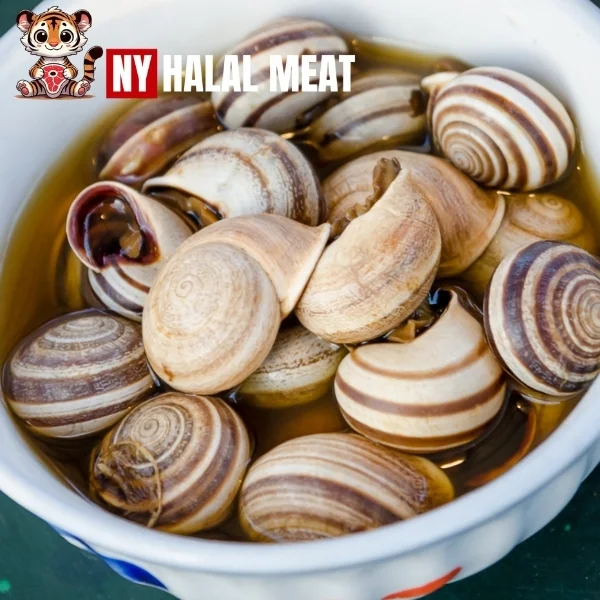Are Snails Halal for Muslims?
What Does Halal Mean in Islam?
In Islam, halal refers to what is permissible, while haram means forbidden. For food to be halal, it must comply with specific rules established in the Qur’an, the teachings of the Prophet Muhammad (Hadith), and the guidance of Islamic scholars. Foods must not contain any forbidden elements, such as alcohol, pork, or anything that is considered impure.
What Are Snails?
Snails are a type of mollusk, found both on land and in water. They are often eaten as delicacies in various cultures, with escargot being a well-known dish in French cuisine. Despite being a popular food in certain parts of the world, snails are not commonly consumed in many Muslim-majority regions. This lack of widespread consumption may make their halal status less clear.
Are Snails Halal?
To determine if snails are halal, we need to explore the classifications of food in Islamic law. Several factors play a role in whether snails can be considered halal for Muslims.
1. Seafood Classification
Islamic dietary laws generally permit the consumption of seafood. Fish and other sea creatures are considered halal. However, snails are not classified as fish, which creates a gray area in Islamic law. While snails live in water, they do not fit into the typical definition of seafood, leading to differing opinions among scholars.
2. Animal Classification
Islamic law outlines specific rules regarding the types of animals that are halal. The animal must not be carnivorous, it must be slaughtered according to Islamic rituals, and it should not be dead before slaughter. Since snails are not explicitly forbidden, some scholars argue that they can be consumed, while others question whether their consumption is acceptable, as they are not mentioned in the Qur’an or Hadith.
3. Scholarly Opinions
Scholars hold different views on whether snails are halal. Some argue that snails, like other sea creatures, could be considered halal by default, while others believe that because they are mollusks, they may not fall under the same rules as fish. Scholars who lean toward allowing snails cite the absence of clear evidence against their consumption. Others, however, point out that the lack of direct mention in Islamic texts makes their permissibility uncertain.
4. Health and Hygiene Concerns
In addition to religious rulings, there are practical considerations. Snails, like other shellfish, must be properly cleaned and prepared to avoid the risk of parasites and toxins. If snails are not handled properly, they can carry harmful bacteria that could make them unsafe to consume. Therefore, Muslims considering eating snails must ensure they are sourced and prepared according to halal standards, including being thoroughly cleaned and cooked.
Conclusion: Are Snails Halal?

Whether snails are halal for Muslims is not a straightforward answer and depends largely on individual interpretations of Islamic law. While some scholars may permit the consumption of snails, others may have reservations due to their classification as mollusks rather than fish. Given the uncertainty, it is advisable for Muslims to consult with local scholars or religious authorities for guidance on this matter.
If you choose to consume snails, it is essential to ensure that they are clean and prepared in a way that aligns with halal standards. In the absence of clear prohibition, snails could be seen as permissible, but this remains a topic of debate within the Islamic community.
Ultimately, Muslims should make informed decisions based on both religious guidance and personal beliefs, and always prioritize food that meets halal standards to maintain spiritual and physical health.


